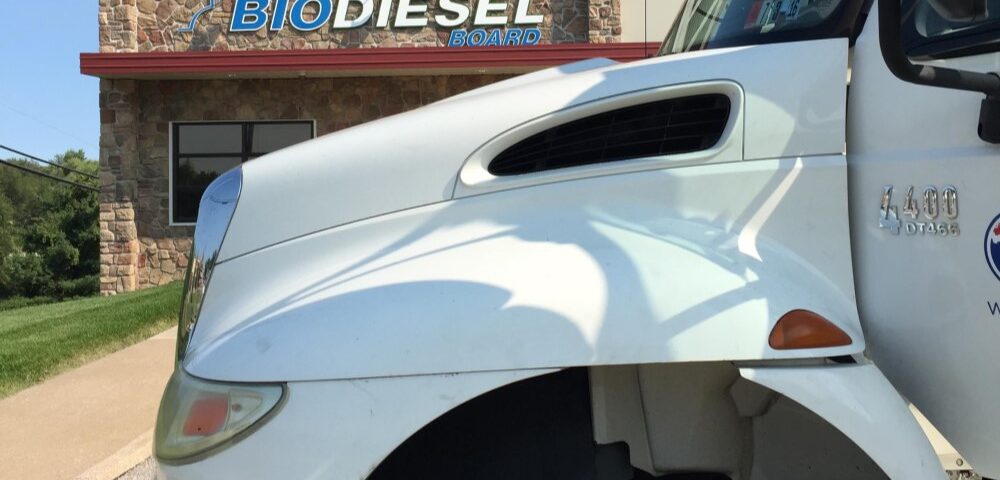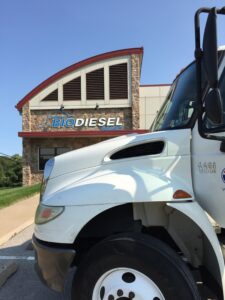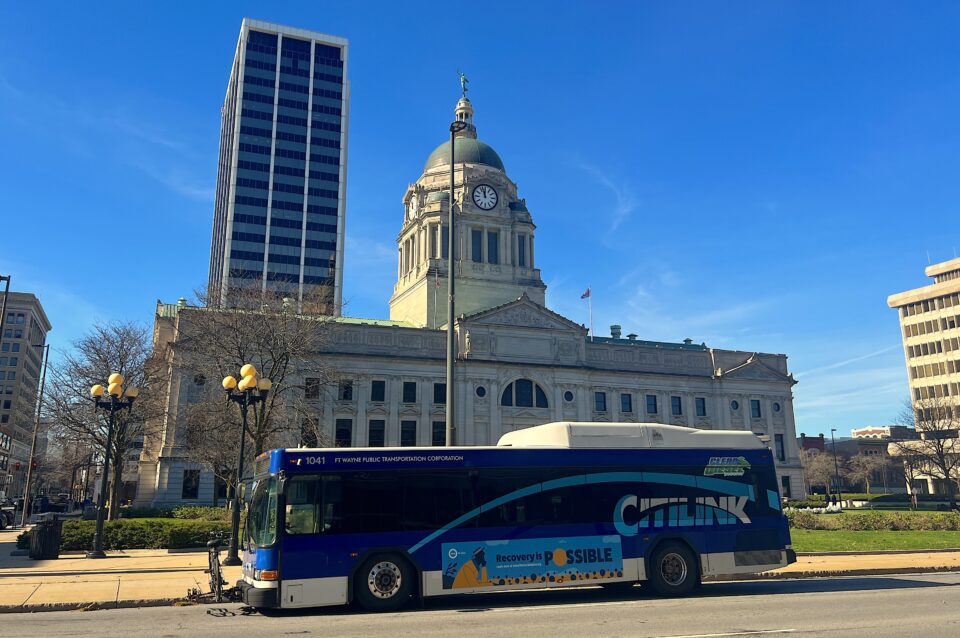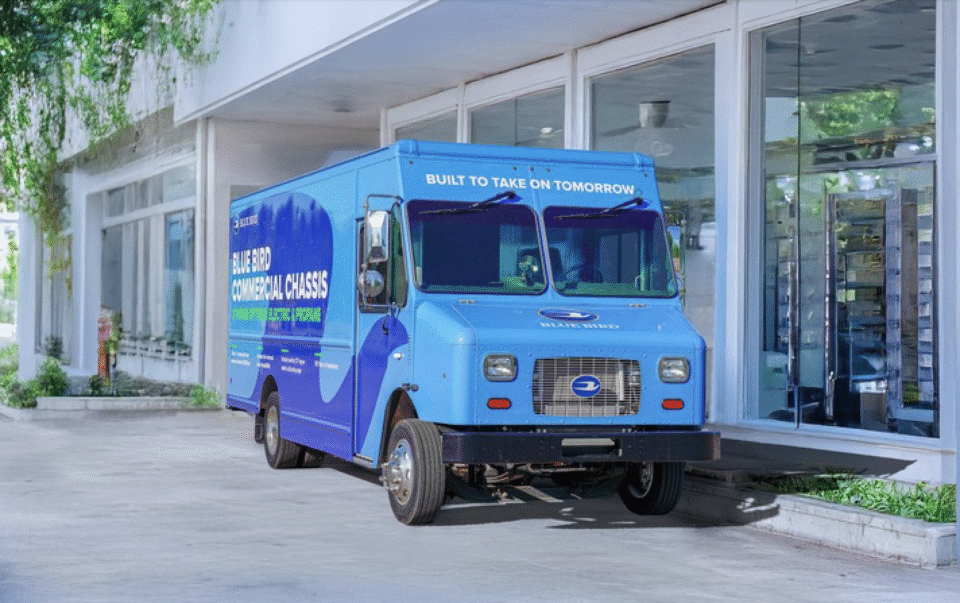Biodiesel Drives Fleet Operations to be Better, Cleaner, Now

 Written By the National Biodiesel Board
Written By the National Biodiesel Board
In a multitude of ways, the past year has drawn into sharp focus the important interrelationships between public health, the environment, and the economy. Yet through all the challenges presented by a global pandemic, extreme weather events, and an economic recession, America’s trucking fleets – the vast majority of which are powered by diesel engines – persevered to continue delivering the essential goods and supplies that our nation relies on to keep moving forward. The past year also demonstrated the need for businesses to adapt quickly to changing conditions, to work smarter with limited resources, to do more to protect the environment and human health, and to not become overly reliant on just one power source. These challenges have become especially pertinent for America’s fleet managers on the front lines of this evolution, and a growing number of those fleets are finding solutions with biodiesel – a renewable, sustainable, low-carbon alternative to diesel fuel – to help them operate better, cleaner, now.
Each year NTEA, the Association for the Work Truck Industry, conducts a comprehensive Fleet Purchasing Outlook Survey to better understand the commercial vehicle landscape, including interest levels for advanced truck technologies and alternative fuels. Insights from NTEA’s Fleet Purchasing Outlook, provided by fleet professionals across the United States and Canada, give the entire work truck industry perspective on anticipated purchasing intent and areas of greatest interest to fleet managers. For the fourth year in a row, fleet respondents in the 2021 Fleet Purchasing Outlook Survey ranked biodiesel as their number one choice for current alternative fuels use, and both biodiesel and renewable diesel were listed as popular options for future use as well.
“Results of this year’s Fleet Purchasing Outlook Survey indicate 2021 acquisition activity will focus more on replacement than expansion,” said Chris Lyon, NTEA director of fleet relations. “This is consistent with expectations, given the fleet purchasing cycle peaked in 2018–2019. Regarding alternative fuel options planned for the year ahead, biodiesel continues to rank among the most widely accepted, representing a significant area of interest for a growing number of fleets. Nearly 40% of respondents anticipate fuel type changes for 2021, an escalation which may be partially attributed to increased usage of all biodiesel blends.”
NTEA’s recently released survey results for 2021 are being highlighted this week during its Work Truck Week 2021 virtual event, and they reflect positive trends for the use of biodiesel and renewable diesel in the diesel vehicle technology of yesterday, today and tomorrow. The National Biodiesel Board (NBB) is participating as a featured exhibitor in the event, with a Live Demo scheduled for Tuesday, March 9th at 9:45 AM ET featuring the City of Ames’ use of clean, low-carbon, one hundred percent biodiesel (B100) to power its fleet.
Rich Iverson, Fleet Support Manager for the City of Ames, Iowa, explained, “Fleet Services actively searches for ways to reduce our greenhouse gas emissions and lower our carbon footprint. As we research alternative fuels for our fleet, we look at the investment into infrastructure and equipment required to move to a different fuel. Biodiesel offers us an easy, reliable and affordable solution for use in our existing diesel fleet with our existing fueling infrastructure.” The City of Ames has been using biodiesel blends of up to B20 (a blend of 20 percent biodiesel with 80 percent ultra-low sulfur diesel) to power its diesel vehicle fleet, including fire trucks and ambulances, for over 11 years with great success.
However, after completing a successful B100 pilot program last year with five of its existing trucks, the City of Ames decided to further amplify its carbon reduction efforts to provide even cleaner air for its residents by purchasing seven new all-purpose dump trucks that are also equipped to run on 100 percent biodiesel. All twelve trucks are upfitted with Optimus Technologies’ advanced fuel Vector System that enables the engines to operate year-round on B100 biodiesel supplied by Iowa-based biodiesel producer Renewable Energy Group.
“We found that using B100 biodiesel combined with technology offered by Optimus Technologies gave us the best cost/benefit ratio in reducing our GHG emissions,” Iverson stated. “The beauty of this approach is its simplicity. Equipping our existing class 7 and 8 diesel dump trucks to run on pure biodiesel was an immediate, economical way to significantly reduce our carbon intensity.”
Compared to fossil fuels like petrodiesel, B20 biodiesel blends reduce carbon by 16 percent on average, and vehicles operating on B100 can reduce carbon by an average of 80 percent. Overall, the City of Ames’ use of biodiesel blends in all its diesel equipment will reduce the fleet’s annual carbon emissions by an estimated 250 metric tons in 2021.
Made from an increasingly diverse mix of resources such as recycled cooking oil, soybean oil and animal fats, biodiesel and renewable diesel are better, cleaner fuels that are available now for use in existing diesel engines without modification. NBB is the U.S. trade association representing the entire biodiesel and renewable diesel value chain, including producers, feedstock suppliers, and fuel distributors.
For more information on Biodiesel, visit www.biodiesel.org. For more information on NTEA’s 2021 Fleet Purchasing Outlook, visit www.ntea.com/fpo.




